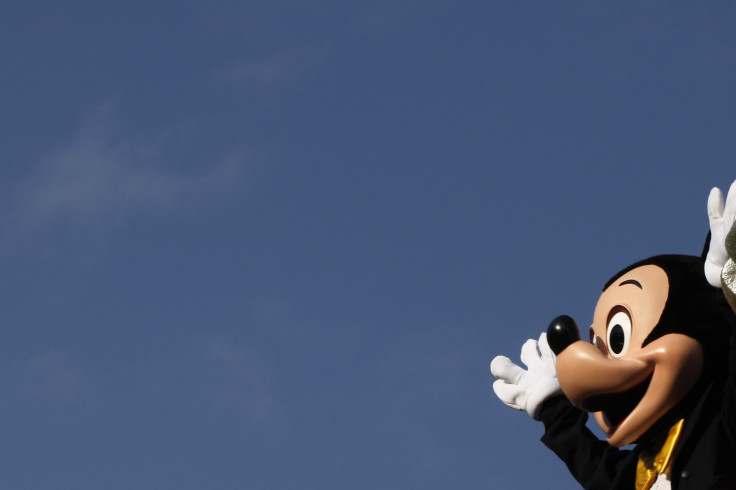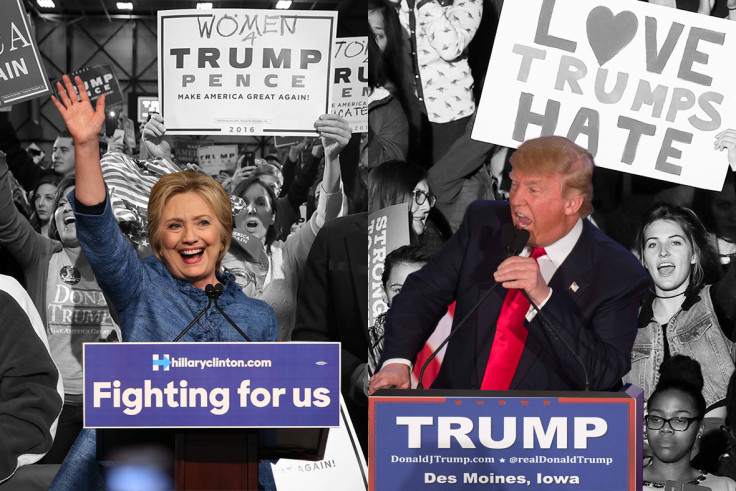Meet the US voters who want to put Santa Claus, Mickey Mouse or Jesus in the White House
America's 'write in' candidates also include rival politicians, friends and family and fictional characters
Back in 2012, fanatical Christians in the US mounted a challenge to Republican candidate Mitt Romney. They urged the faithful across America not to cast their ballot for the billionaire businessman running against Barack Obama, but to write the name of their candidate: Jesus Christ.
Jesus doesn't qualify for the highest political office in the US. Even if you don't accept that he has been dead for almost 2,000 years, he was, according to the Bible, born in Bethlehem and therefore not a US citizen. But that didn't deter the architect of his campaign, Bill Keller.
In his Plan of Action: How You Can Get Out the Vote for Jesus!, Keller outlined voting procedures in all 50 US states. Only seven automatically count so-called 'write-in' candidates and a further eight ban them altogether. The other 35 require some sort of registration – a signature, for example – that may prove a challenging given that the candidate has rather elusive for the last two millennia.
In 2008, a total of 112,597 people opted for so-called 'write-in' candidates, and in 2012 that figure had grown to 136,040. In Alabama New Hampshire, New Jersey, Vermont, Iowa, Pennsylvania and Rhode Island – where write-in votes are counted - those entries are listed on the federal election results. In the others they are either listed as 'scattered' or 'none of the above candidates'.

Despite claims on their website that over two million voters had committed to giving Jesus Christ the nuclear launch codes and keys to the Oval Office, many of the faithful clearly got cold feet on election day. In the seven states that allow write-ins, Jesus did not get a single vote – and whether due to onerous registration procedures or otherwise, he was not registered as a write-in candidate in any of the other 35.
But even if he had been, the write-in field is a competitive one, and has been traditionally dominated by two other American electoral stalwarts: Mickey Mouse and Santa Claus. Back in 1985, San Diego considered banning Mouse, Mickey from holding public office in the California, with legislators concerned that not only was America's most famous rodent a citizen, but he was old enough to run.
"He's said have been born in this country – and I guess he's 35," one judge said.
Disney's iconic rodent is believed to have got his first vote in 1932, in a New York mayoral race, where he drew with Al Capone on a single vote. By 1987, the state of Georgia had formally banned voters from writing Mickey Mouse on their ballot paper.
A write in campaign has never influenced the outcome of a national presidential election.
But in both 2008 and 2012, Mouse was still winning votes to the highest office in the land. In 2008 and 2012, he picked up 22 and 14 votes respectively in Rhode Island. In Travis Country, Texas, 11 voters wrote Mickey Mouse on their ballot, but their votes – just like in many other states – were disqualified.
Santa Claus has always been a popular candidate in US elections at every level, but his campaign had particular momentum in 2008 and 2012 as the human personification of the festive period himself opted to run. Claus, 68, lives in North Pole, Alaska, and is therefore an American citizen. He registered as a write-in candidate in just over a dozen states, although in 2016 he said he had no idea how many votes he actually won.

According to the 2012 federal results, Claus – who was born Thomas O'Connor but changed his name by deed poll in 1995 – picked up 625 votes in Maryland, six in Idaho and three in Montana.
It is a quirk of the US system that voters are permitted to vote for whoever they want in federal and state elections, be that themselves, their friends and family, fictional characters, deities or American citizens living or dead.
But there has been a serious side to the write-in phenomenon in the era of Donald Trump. Last month when the Republican candidate was revealed to have made offensive and degrading private comments about women in 2005, a number of Republicans including former candidate John McCain said that they would write the name of another senior Republican on their ballot paper rather than vote for him.
In 2010, Alaska Senator Lisa Murkowski won re-election following an unprecedented write-in campaign
This has been a phenomenon at elections throughout recent American political history. In Pennsylvania in 2008, Hillary Clinton won 5,014 votes despite not appearing on the ballot, when voters wrote her name in the 'others' section of their ballot paper.
In New Hampshire in 2008, Sarah Palin beat Bill Clinton with 18 to 13 votes amidst a slew of write-in candidates that included Mike Huckabee, Mitt Romney (who would take on Obama four years later) and Ron Paul. Hillary Clinton, who had challenged Obama for the nomination, secured 1,124 votes.
A write-in campaign has never influenced the outcome of a national presidential election, but it has had success in lower down the electoral food chain. Franklin D Roosevelt, Dwight Eisenhower, Richard Nixon and John F Kennedy all won presidential primaries through write-in votes.
In 2010, Alaska Senator Lisa Murkowski won re-election following an unprecedented grassroots write-in campaign, after radical Republican offshoot the Tea Party managed to get a rival politician the party nomination in her seat. She was re-elected despite her rival being the official nominee.
Despite these examples, the American political system is unlikely to be upset by a slew of votes for outside candidates, whether they are fictional characters or Trump rivals. But whether they vote Jesus or not, many on both sides of the political spectrum who are terrified at the prospect of Trump in the White House may be praying for some kind of divine intervention on 8 November.
© Copyright IBTimes 2025. All rights reserved.






















